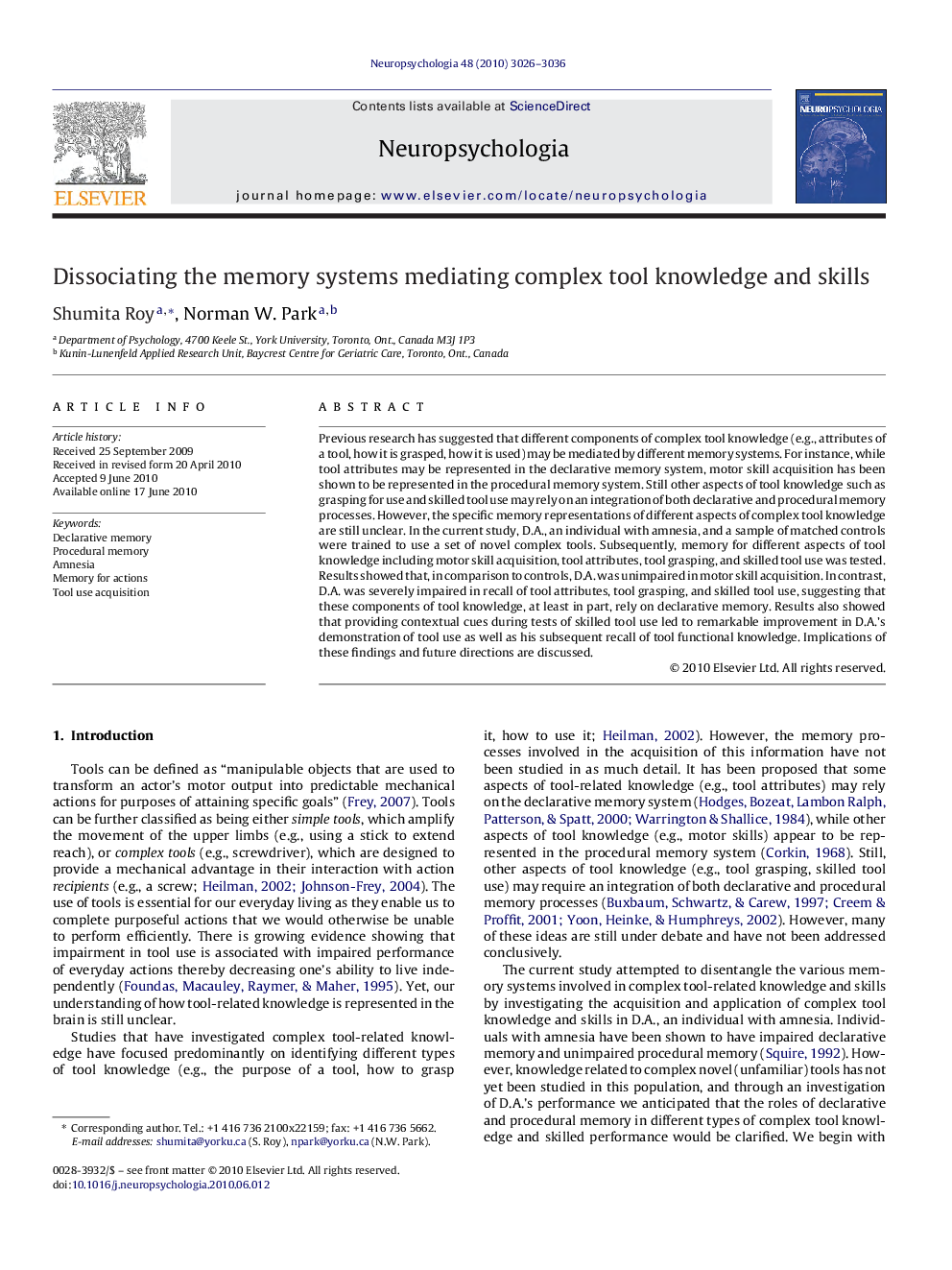| Article ID | Journal | Published Year | Pages | File Type |
|---|---|---|---|---|
| 10465622 | Neuropsychologia | 2010 | 11 Pages |
Abstract
Previous research has suggested that different components of complex tool knowledge (e.g., attributes of a tool, how it is grasped, how it is used) may be mediated by different memory systems. For instance, while tool attributes may be represented in the declarative memory system, motor skill acquisition has been shown to be represented in the procedural memory system. Still other aspects of tool knowledge such as grasping for use and skilled tool use may rely on an integration of both declarative and procedural memory processes. However, the specific memory representations of different aspects of complex tool knowledge are still unclear. In the current study, D.A., an individual with amnesia, and a sample of matched controls were trained to use a set of novel complex tools. Subsequently, memory for different aspects of tool knowledge including motor skill acquisition, tool attributes, tool grasping, and skilled tool use was tested. Results showed that, in comparison to controls, D.A. was unimpaired in motor skill acquisition. In contrast, D.A. was severely impaired in recall of tool attributes, tool grasping, and skilled tool use, suggesting that these components of tool knowledge, at least in part, rely on declarative memory. Results also showed that providing contextual cues during tests of skilled tool use led to remarkable improvement in D.A.'s demonstration of tool use as well as his subsequent recall of tool functional knowledge. Implications of these findings and future directions are discussed.
Related Topics
Life Sciences
Neuroscience
Behavioral Neuroscience
Authors
Shumita Roy, Norman W. Park,
